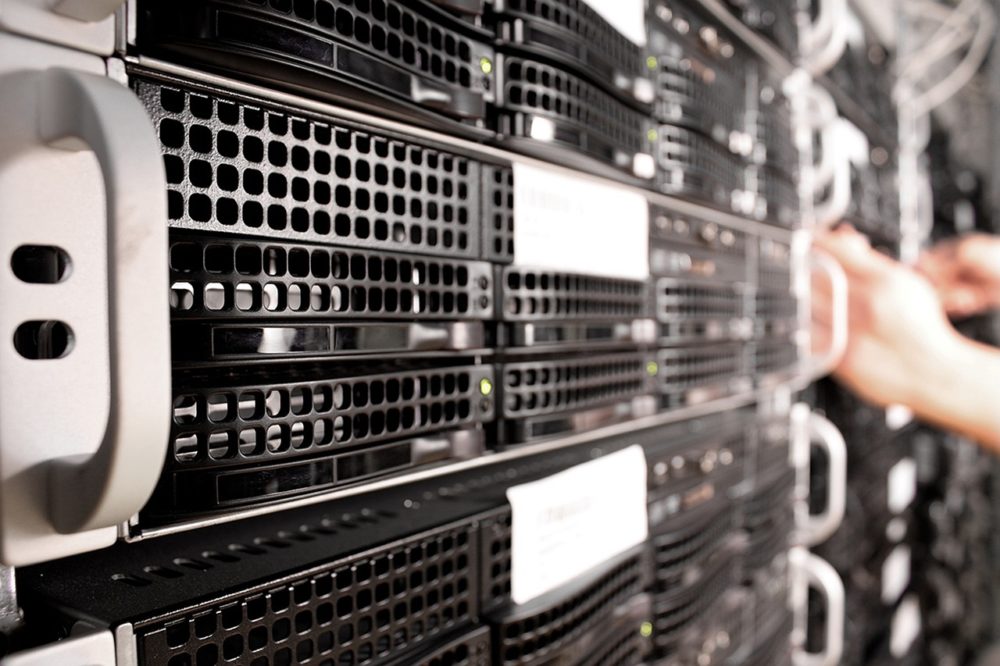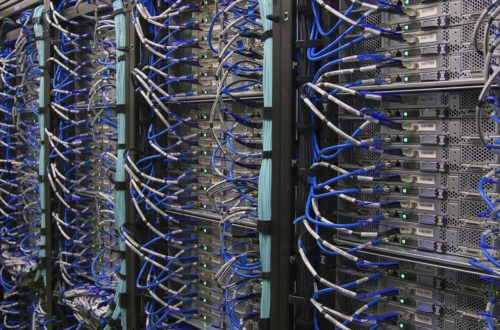What Are Servers & How Do They Work?

Have you at any point pondered about the components that deliver the webpages to you? Odds are you are sitting at a computer at the present time, seeing this page in a browser. In the event that you’ve at any point been interested about the procedure, or have ever needed to know a portion of the particular components that enables you to surf the Internet, read on.
What is a Server?
- Servers are computers put aside particularly to store information or oversee network connections. Any kind of computers can be changed over to a server, although most servers don’t utilize a keyboard or screen, the way an ordinary desktop would.
- Most businesses use no less than one server to function as a central hard drive for different computer workstations and a central location to route peripheral device data through, similar to printers or scanners, so everybody in the workplace has access to the peripheral devices from their own desktop. The server can be connected to a Local area network (LAN), which is hard-wired, or through a Wide Area Network (WAN), like a remote internet connection.
- For the dominant part of business applications, the term server alludes to a kind of computers. Dissimilar to a standard personal computer, most servers do not have a screen, keyboard or mouse.
- Rather, the server accompanies a powerful processor, fast RAM and numerous hard drives, and additionally a network interface. Server hard drives normally work at a higher speed than those found in desktops. The blend of high-speed hard drives, RAM and powerful processors enables a server to offer essentially higher processing power and performance than desktops systems.
Functions
Servers perform functions going from data storage and administrating printers to offering database services. Many business organizations frequently keep up individual servers devoted to one task, for example, email. Servers provide a safe and centralized method of data storage. The less intense information management needs of smaller businesses organizations that enable them to utilize one server which provides a combination of available functions.
Different Types of Servers
A server computer can be set up to play out a few various types of tasks. A mail server is composed particularly as a central location for all email that is handled through a network. Whereas a web server contains the greater part of the files and documents that are important to display any site and deal with any interactivity through a web browser.
Data servers contain documents that individuals need to share through a network. Basically, these servers are storage for various files and documents that should be accessed by more than one outside computers.
Servers on Home Networks
Servers can be helpful for home use and also for business. A home network could use a server to spare hard drive space on every family members to personal home devices or a PC and in addition to giving access to shared files, printers, scanners, or other peripheral gadgets that maybe utilized by more than one individual.
The home server is in some cases used to operate a router so a wireless signal is accessible from throughout the home. Modern day devices, similar to refrigerators and lighting networks, can likewise be connected to a server that will enable members to control the appliances remotely. Since a server can be created using any PC, it isn’t troublesome for a family to make a server from an obsolete PC that has been replaced.
Client-Server Model
Many servers keep running on the client-server model. This implies the computers connected to the server are clients and the server houses the data and software those clients need to use for their processing. A centralized server can fill in as the entryway to the web for a few computers that are directed to that server.
Generally, the server gives a digital pathway to every client to get to the web or utilize a unified software. This client-server model enables business organizations or home users to buy one rendition of software and offer that version with the majority of the computers on the system.
Most software programming organizations, particularly those intended for business utilize, will sell licenses that enable a specific number of clients to access and utilize the product. Running software on a remote server enables every workstation to keep up its own processing speed and memory storage independently from the demand of the software.
In conclusion, servers are essential hardware that facilitate a variety of tasks like data storage, email administration, and website hosting. They also manage network connections. They provide more performance and processing capability than standard desktop PCs. Networks in both homes and businesses utilize servers to exchange files and devices. Through a centralized server, the client-server approach enables numerous computers to access applications and the internet. Overall, servers are essential for effective data management and connection across a range of contexts.
Would you like to receive similar articles by email?





